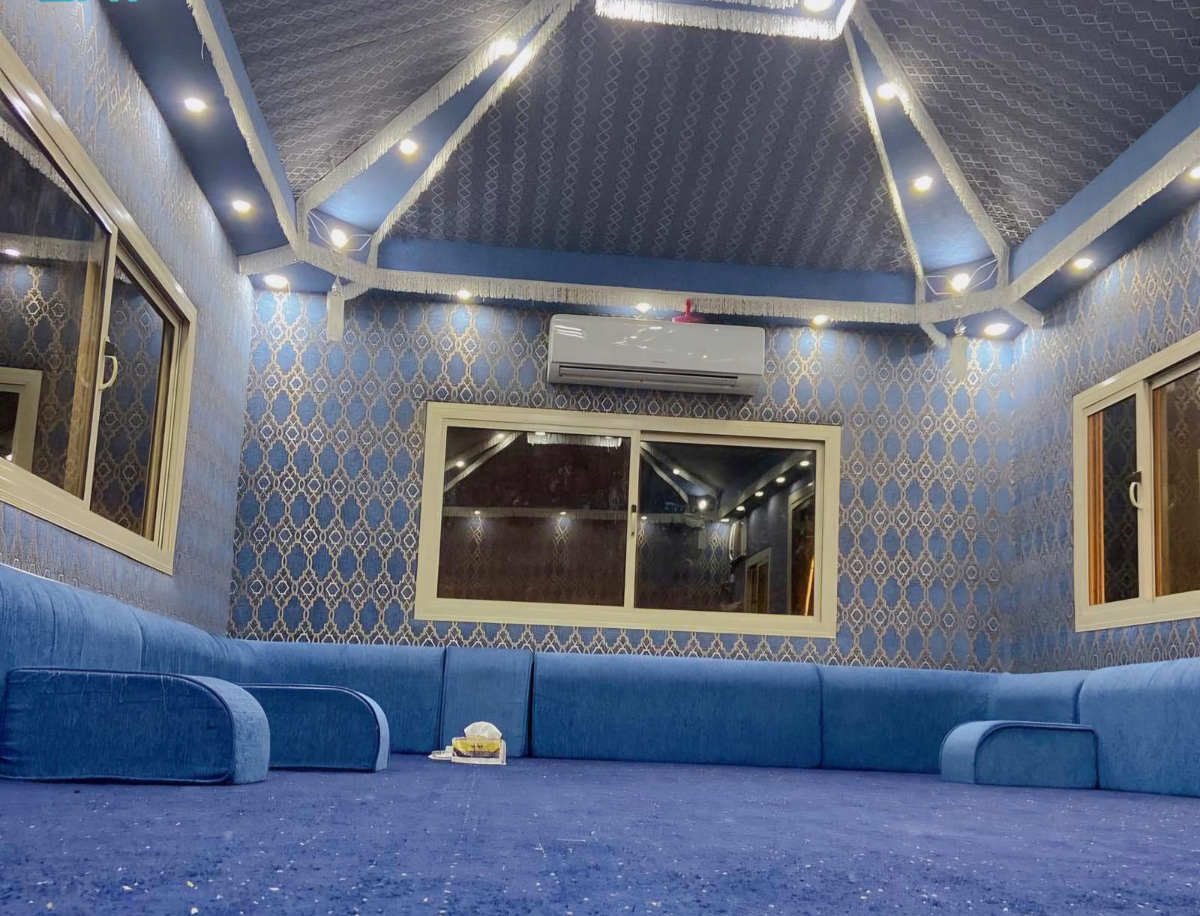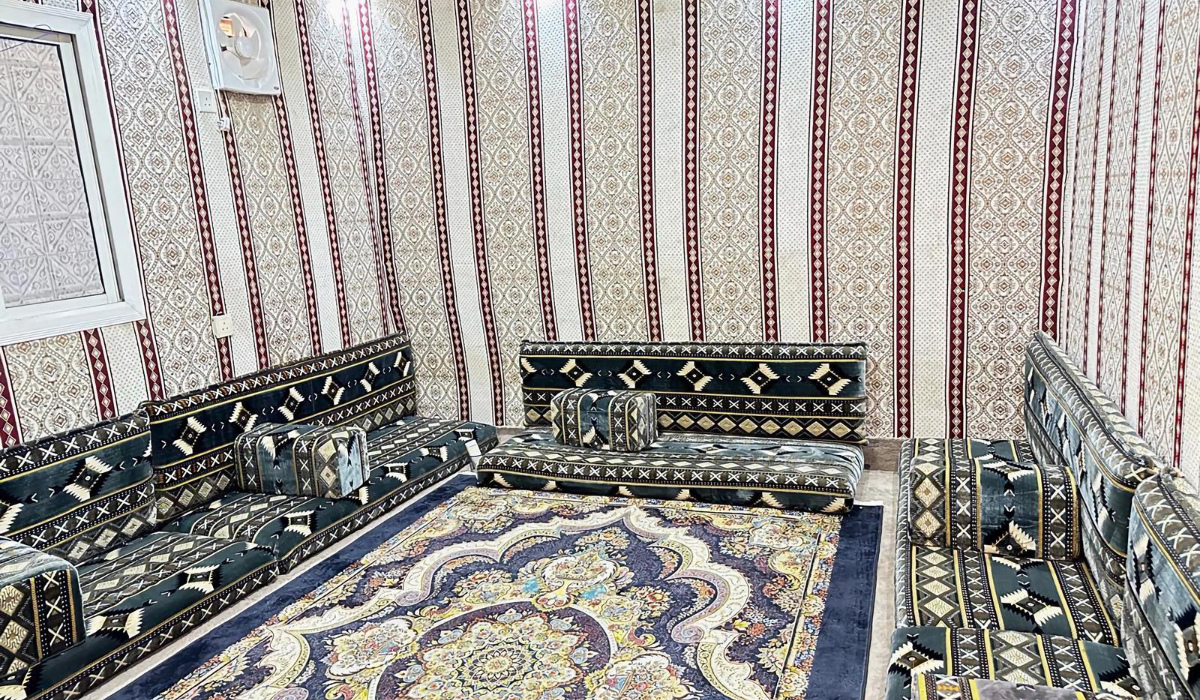JEDDAH: The Bedouin tent, known locally as “Bayt Al-sha’ar,” has long been cherished as a cultural icon symbolizing hospitality, and tradition.
These spacious structures, once primarily made of goat hair and sheep wool, have evolved to incorporate modern design elements, while preserving their authentic character, according to the Saudi Press Agency report.

An indispensable component of the Arabian tent is the “mashb” or “wajr,” a circular or square pit used for cooking traditional Arabic coffee. (Supplied)
Originally designed to accommodate large groups of visitors, Bedouin tents have become popular gathering places for social interaction, tribal discussions, and poetic gatherings.
Their comfortable interiors and ability to withstand harsh weather conditions have made them desirable spaces for relaxation and socializing, particularly during winter months.
FASTFACT
Businesses producing Bedouin tents have witnessed significant growth, with a wider range of high-quality materials and colors now available.
Construction of Bedouin tents involves a meticulous process that begins with the preparation of a designated area. The tent’s structure is then erected using a framework of tubes and iron pipes, which are carefully detailed to match the desired size and shape.
The exterior and interior fabric is installed, followed by the addition of essential amenities, such as lighting and decorations. Many tent owners opt for floor seating, while others prefer elevated seating with cushions adorned with intricate engravings.

Tents are typically 2-3 meters in height, up to 3 meters wide, and often exceed 10 meters in length. (SPA)
An indispensable component of the Arabian tent is the “mashb” or “wajr,” a circular or square pit used for cooking traditional Arabic coffee. These are typically made of clay, red bricks, or marble.
Modern tents often incorporate traditional elements such as black fabric, while adding contemporary touches. These enhancements contribute to the tent’s overall aesthetic appeal and comfort.

Bedouin tents have become popular gathering places for social interaction. (SPA)
Tents are typically 2-3 meters in height, up to 3 meters wide, and often exceed 10 meters in length.
Contemporary tents often feature lighter colors that reflect sunlight, providing thermal insulation. Additionally, materials such as wood and sponge are used to enhance the lining and sides of the porch, while tiles are incorporated into the roof for aesthetic purposes and weather resistance.
Interior fabrics such as “sadu” are commonly used to decorate Bedouin tents. Glass doors are often incorporated to allow for natural light and easy guest reception.
Modern amenities, including entertainment elements, are increasingly being added to enhance the overall experience.
Businesses producing Bedouin tents have witnessed significant growth, with a wider range of high-quality materials and colors now available.
Shops and factories specializing in Bedouin tents offer comprehensive services, including equipment, interior decorations, seating, furnishings, coffee preparation utensils, lanterns, flooring options, and traditional Arabic carpets.
Bedouin tents continue to be a cherished symbol of Saudi culture, blending tradition with modern aesthetics.
Their enduring appeal lies in their ability to provide comfortable and inviting spaces for social gatherings, while preserving the rich heritage of the Arabian Peninsula.



























